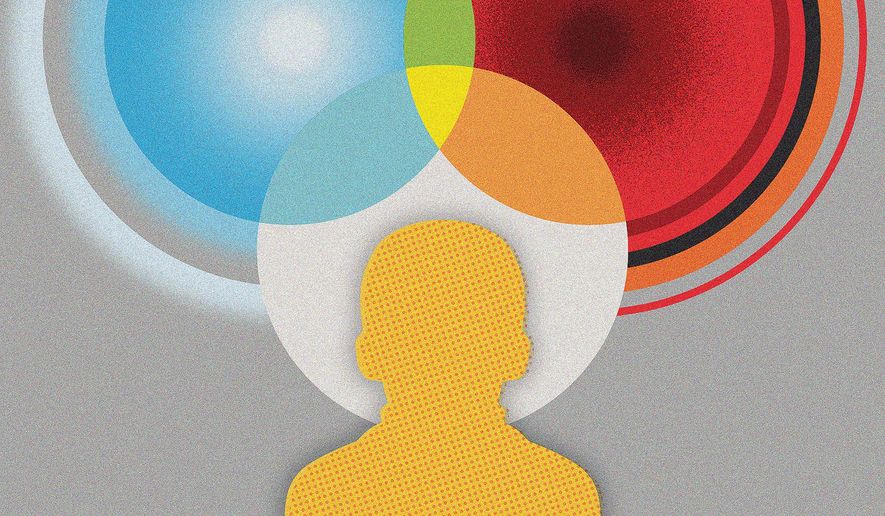OPINION:
Why, why, why we ask ourselves every time there’s a mass shooting. There are all the usual explanations: Too many guns on the streets, mental illness and the failure to control crime. But murder isn’t an instrumentality or state of mind. It’s a moral choice.
The answer is in a book that’s probably somewhere in your house — a book that was written a long time ago. It has maxims like: “Every inclination of the human heart is evil from childhood” — Genesis 8:2, and “Yet they did not obey or incline their ear, but walked in their own counsels and their evil heart” — Jeremiah 7:24.
About the Highland Park, Illinois. Fourth of July shootings — which left seven dead and more than 30 injured — the responses were painfully predictable.
The president, who just signed another meaningless gun law, vowed, “I am not going to give up fighting the epidemic of gun violence.” How comforting to view murder as a disease we can fight with social medication, rather than the result of individual acts of volition.
Republicans responded by urging more money for police and mental health and getting rid of soft-on-crime prosecutors. All would help. But these good policies won’t work without recognition of reality.
A man who was at the Highland Park parade with his children says he’s hard-pressed to explain what happened to them, other than to say that there are sick people and the community hasn’t done enough to reach out to them. (“How have we failed you, darling?”) Were the architects of genocide sick? Perhaps if Eichmann had therapy, he wouldn’t have helped to murder 6 million people.
The Highland Park father should tell his children that there is evil in the world and there are monsters who take pleasure in making others suffer. They’re not sick or misunderstood or in need of services. Trying to keep weapons out of their hands is futile.
There are as many explanations for mass shootings as there are mass shootings. There are fatherless families and children who grow up without discipline or guidance. There’s the isolation and alienation that comes from mass culture. There’s the media that glorifies violence — that tells impressionable youth that power comes from the barrel of a gun.
But none of this gets to the heart of the matter. How can we properly discuss the Highland Park tragedy when we lack the vocabulary of times past?
We live in an increasingly secular age where many find the idea of divine judgment terrifying. According to a 2021 Gallup poll, for the first time in our history, membership in churches and synagogues has fallen below 50%.
Consider the persecution of Joseph Kennedy, the high-school coach who knelt to pray on a football field. After losing his job and years of litigation, last week, the Supreme Court ruled that he had not breached the mythical wall of separation twixt church and state.
Think about attacks on conservative churches following the Dobbs decision.
How dare these patriarchal institutions tell women what to do with their bodies — that it’s wrong to kill their unborn children, opponents of Dobbs screech?
Until we admit that there is evil in the world, no one is safe. How about that?
We’re doing everything imaginable to ensure that as few of the young as possible encounter the concepts of good and evil. Prayer was taken out of the schools 60 years ago.
Many adults are frightened by moral absolutes. Laws can be repealed. The Supreme Court can reverse itself. But God-given standards have a finality about them.
In 1964, the late Rabbi Menachem Mendel Schneerson, then the leader of the Chabad Hasidic movement, wrote of “the vital need that the children in public schools should be allowed to begin their day at school with the recitation of a non-denominational prayer, acknowledging the existence of a Creator and Master of the Universe, and our dependence on him.”
Instead, we teach evolutionism and situational ethics and indoctrinate youth in the ideology of the sexual revolution. Even acknowledging Divine providence is considered too controversial.
What motivated the Highland Park shooter — rage, despair, a nihilistic urge to inflict as much suffering as possible?
Such speculation is useful, but not dispositive.
Once we admit the existence of evil, we can begin working to protect ourselves from it. Give law enforcement the tools it needs to deal with the monsters. But teach our children right and wrong — good and evil — before they become monsters.
• Don Feder is a former Boston Herald writer and syndicated columnist.




Please read our comment policy before commenting.